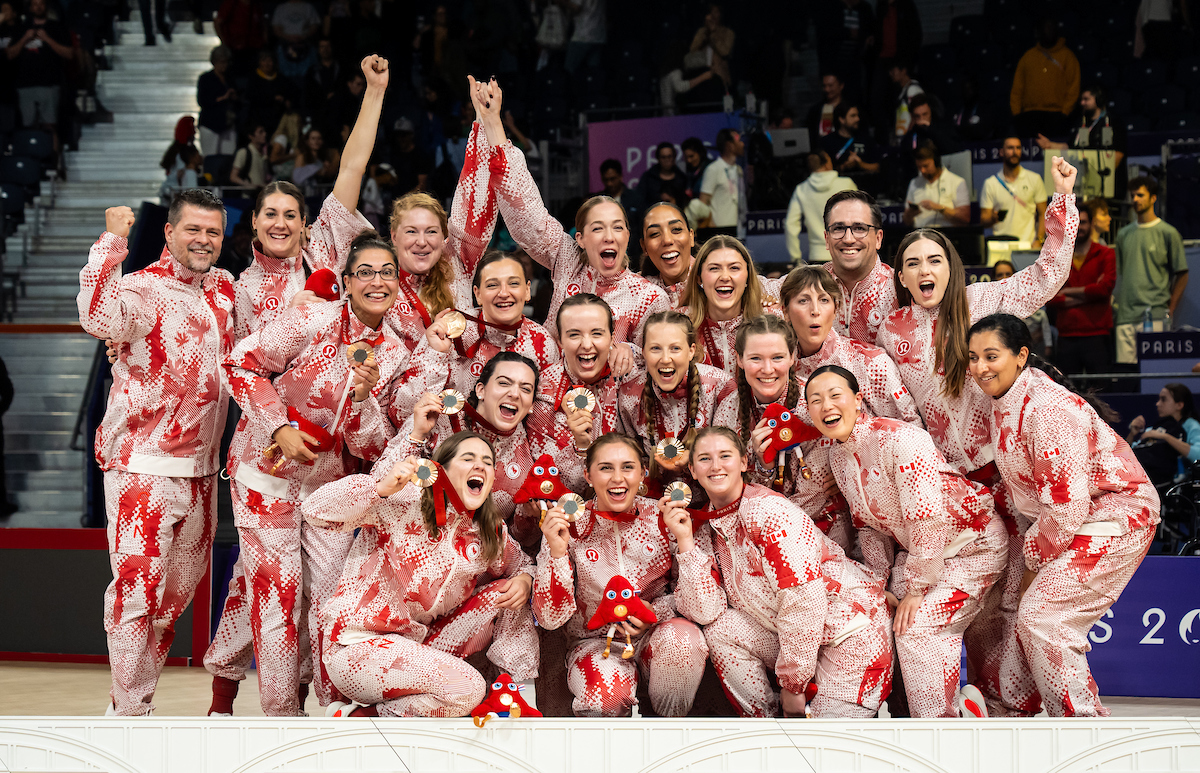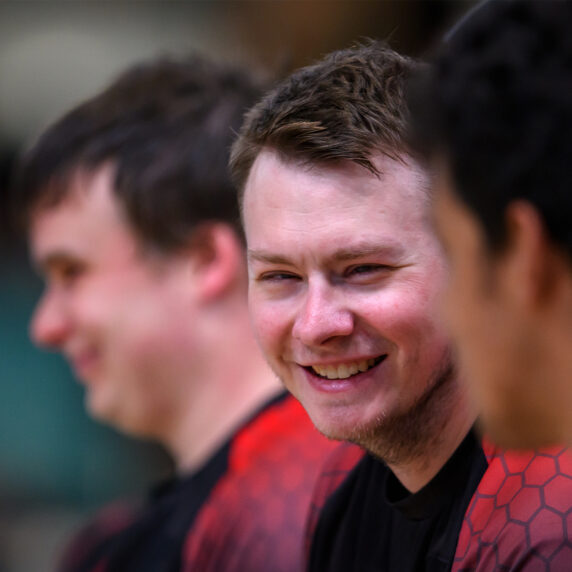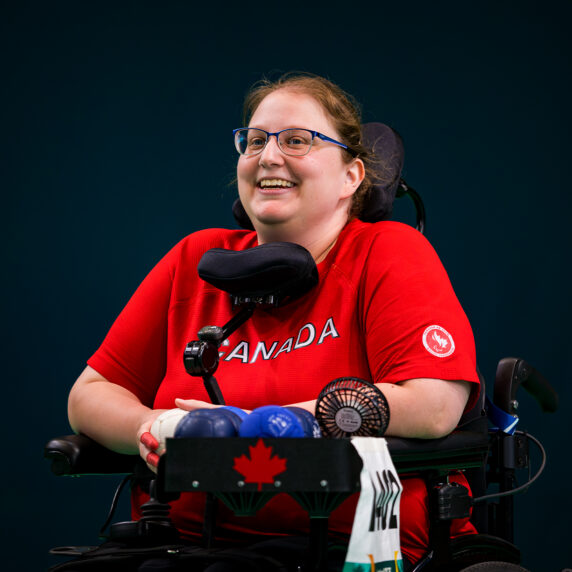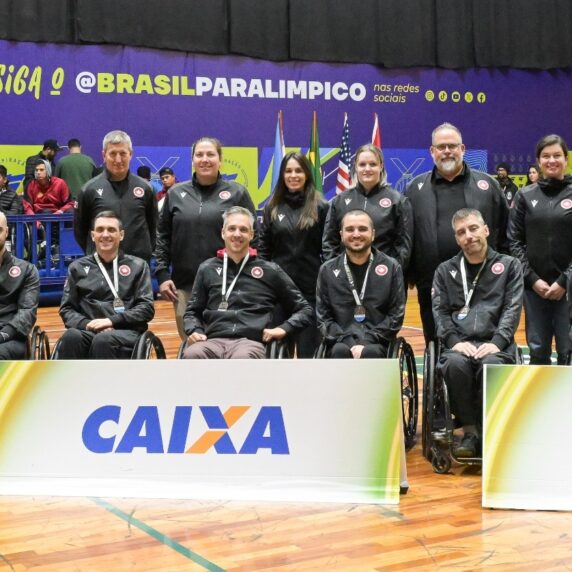Canada defeats Brazil en route to earning their first ever medal in sitting volleyball at the Paralympic Games
Canada wins their bronze medal game in straight sets, 3-0

PARIS – Revenge is a dish best served in straight sets, as Canada utilized controlled aggression in a concerted team effort to take down Brazil 25-15, 25-18, 25-18 in their bronze medal game in women’s sitting volleyball on Saturday.
Canada earns their first medal in sitting volleyball at a Paralympic Games since the sport was first introduced in the women’s bracket back in Athens in 2004.
Head coach Nicole Ban summed up the long road leading to this historic finish to these Paralympic Games for the Canadians.
“We finally did it, we showed up in our third Paralympic Games, our second bronze medal match, and we did it,” said Ban after the victory. “I couldn’t be more proud of the athletes today, but really for the growth that we’ve had for the nine and half years I’ve been with the program. Most of this core group has been here through it.”
Heidi Peters led the Canadians with 18 total points, including an eye-popping nine service aces, many of which came in a dominant first set. Three-time Paralympian Jennifer Oakes led the team in attacking points with ten, and captain Danielle Ellis added 13 total points to help Canada push the Brazilians to the brink.
Peters alluded to a level of confidence the group instilled in themselves that played out on the court in their favour.
“Coming in and saying that we just trusted our game plan and trusted our serving and if we found that, we would find the results that we wanted and that’s what happened,” said Peters after the match. “That belief that our style of play would get us a medal today, we were just prepared for every scenario.”
After losing to the Brazilians three sets to one in their second preliminary round match, Canada came into the contest with a set game plan, and did not deviate from it.
The team was able to execute conscious attacks on three touch plays, and forced the former World Champions to work around the court with well-positioned hits.
While the win was certainly a product of a collective team effort, different players stepped up in each set to earn the victory. In the first set, Canada got out to a 11-4 lead including a five-point swing and two serving aces from Peters.
Canada continued to place the ball perfectly in areas with less coverage, preventing Brazil from making good contact on the first touch. Up 18-15, Peters helped Canada tally a 7-0 run, including an unstoppable five straight aces from the Neerlandia, Alberta native herself to finish the set. Peters was responsible for 11 of Canada’s 25 points in the opening set.
The 29-year-old pointed to the importance of getting some key aces to open up the game.
“Really strong game plan, really going out there to serve our best serves and focus on our receive game and just hit the ball hard, be really smart with our attack,” she said post-game.
“We have some of the best setters in the world, I had no doubt they were going to distribute the ball effectively, and I think our serve game was definitely what won that.”
In the second frame, Brazil got out to an early 4-1 lead, but Canada clawed their way back to even the game at 7-7. Ellis then came alive, with three strong attack points during a 4-0 Canada run. She served her 13th ace of the Games, proving her importance for her team anywhere on the court. Canada finished the set on another four-point run, with five of their last six points coming on attack.
Ellis finished with seven attacking points in the set, and felt the team learned a lot from their loss to the Brazilians earlier in Paris.
“We lost to them just a week ago, but today we came in with so much information,” said the team captain. “We knew what was happening. We were all in it together, eye contact, playing hard, playing aggressive, it was really fun.”
Brazil only held the lead once in the first two sets, making it 6-4 their favour in set two before Canada rebounded.
In the final set, Brazil began to find their form, going on a 6-1 run to make it a 14-10 game after trading points early. Canada, proving that sticking to their game plan was the key to success in this one, countered with a 10-1 run to gain the lead 20-15.
Oakes powered three attack points within that frame to help bring up the Canadians back to life, while Julie Kozun of Melfort, Saskatchewan added some spectacular serves and attacks to lift Canada to their medal-winning victory.
There is still a lot in store for the sport in Canada, Ban says, nodding to her team for a big reason for the next big wave.
“I hope that bringing back a bronze medal to Canada can only increase the awareness for young kids with disabilities in our country,” says Ban. “Hopefully they’re tuned in today, or they watch a highlight and they want to come out and be like the heroes that were out there on the court today.
“I couldn’t be more proud of a group of athletes to advocate off-court, and compete like crazy on-court.”
Ellis echoed her coaches sentiments, adding what she hopes to see from the sport in her home country.
“More athletes, more fun in Canada, we just need to keep growing and building because we only want this program to get better.”



"*" indicates required fields
"*" indicates required fields